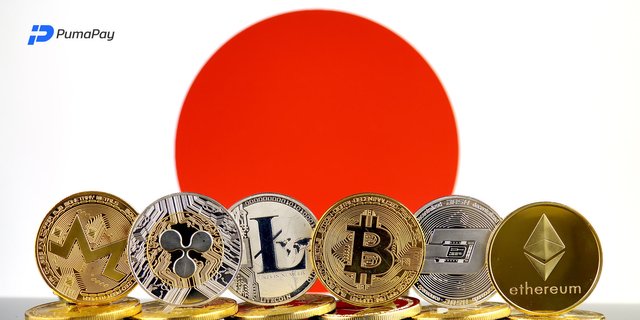Are Cryptocurrencies Taking Over Cash in Japan?
Jan 29, 2019
Things are beginning to change in Japan. The government is increasingly embracing blockchain technology and cryptocurrencies. Unlike China and South Korea, Japan has been very slow in adopting e-money. For a long time now it has relied on cash, but there is a reason for that. Low street crime, low interest rates and inheritance tax, have given people the luxury of using cash.
But many retailers are beginning to accept cryptocurrencies as a legal payment method. Japan is then moving into becoming a cashless economy. Digital currencies are part and parcel of a progressive future. This is why Japan is making sure that they form an integral part of its own economy. As it begins to reduce the use of cash in everyday transactions, it aims to introduce new cryptocurrencies alongside the Japanese Yen.
The Tokyo Olympic Games are fast approaching and Japan hopes to rein in the use of hard cash, which currently accounts for 65% of transactions. The Olympics will be a turning point for Japan’s economy. With the influx of tourists and the increase in financial activity, the country needs to reform its system fast. According to a Financial Times (paywall) article, “Japan’s cash addiction will not be easily broken,” the government has declared “an ambition of doubling cashless payment rates by 2025” in order to change years of old habits relying on hard currency.
Hard Cash
Not only does it cost Japan annually around $15-18bn, for handling cash, but it also requires labor force which is dwindling. Additionally, the FT article highlights that the massive reliance on cash, “at about double the average 32 per cent rate of other developed economies,” conceals illegal activities, such as tax evasion. It is estimated that 60% of restaurants in Tokyo and many large supermarkets won’t accept a card.
High cash usage rates suggest that Japanese people enjoy what hard cash can afford them: “anonymity, portability, resilience to earthquakes, distrust of banks and a sensation of ownership.” (“Japan’s cash addiction will not be easily broken,” Leo Lewis). Throwing this away will be hard, especially for the older generations. But the benefits that cryptocurrencies can offer, such as anonymity and a sense of ownership which is not linked to banks, are perhaps closer to those they have been used to with cash.
Cryptocurrencies
By 2020, and in time for the Olympics, Japan’s biggest bank, and the world’s fifth largest bank, Mitsubishi UFJ Financial Group (“MUFG”) is expecting to deliver a blockchain-based payment network with the help of US tech company Akamai. The two have partnered to design a blockchain built on Akamai’s cloud service. They claim it can handle 10 million transactions per second. Called Akamai Intelligent Platform, the blockchain network will be designed to be the fastest and most powerful network ever built.
The Mizuho Financial Group has also announced that in March 2019 it will be launching a new stablecoin. Mizuho is the second largest financial services provider in Japan, with a total of $1.8tr in 2017. The project is called J-Coin and is backed by 60 domestic banks. It will be used to pay for goods and services through smartphones. While not regulated by Japan’s central bank, J-Coin will be pegged to the yen 1:1, so that it won’t fluctuate as other cryptocurrencies.
Japanese banking firm SBI Holdings has revealed its plans to launch its own token. S Coin is going to be used for mobile retail payments. The token will first be used as an experiment to be tested by SBI Group employees. If the trial is successful, it will be eventually implemented, reinforcing Japan’s attempts to increase the use of blockchain technology in payments.
All these companies exemplify Japan’s desire to move into the realm of cryptocurrency payments. This move appears to be natural because the country is familiar with technological advances, trading in cryptocurrencies and cryptocurrency regulations. Japan’s jump into the cryptocurrency world might not be a faraway possibility. With pressure from government agents and regulators, and a financial system that is in need of restructuring, these are good enough reasons to make the transition happen.
